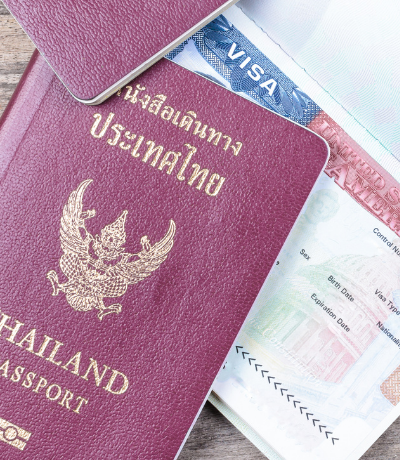What is the purpose of a passport and visa for international travel?
23 February 2010
When traveling between different countries, a passport is required to gain access and cross the country’s borders. The purpose of a passport is to show other nations that you are a legal citizen of your particular nation of origin. For example, if you are American and want to enter the United Kingdom, you must show customs your passport in the United Kingdom to prove that you are a U.S. citizen before they will allow you entry. Essentially, a passport asks other nations permission for you to cross their borders and become a part of their culture, even if it is temporary. Most passports contain your photograph, name and birth date, along with your nation of origin and a signature. American passports typically last for ten years, and the expiration date is clearly shown on the inside cover. Every country has specific guidelines in terms of getting a passport. The laws are different from country to country, so it is best to find out what is required before attempting to get one. If you’re traveling somewhere that a passport is required, travel insurance is recommended in the event the passport gets lost or stolen.
Visas are another document designed to allow people access into other countries. The difference between a visa and a passport is: a visa specifies certain reasons why that person will be staying in the country. It also specifies a certain time frame. Most of the time, visas are granted to people who work or plan to attend school in a nation for a select amount of time. It is really a supplement to the passport, since both are required at the same time. The visa is usually stapled or attached to the passport and shown at the time of entry into another country. Most visas have time limits, and typically that time extends to about six months. People can request that their visa be extended in certain circumstances, but there are usually strict requirements one must meet before getting a time extension. Just like passports, a travel insurance policy is recommended in case the paperwork is misplaced.
Passports are a form of legitimate identity, mainly because of the procedure that people must follow in order to get one. Most countries require an original birth certificate as proof of citizenship and identification. There is also a fee and a waiting period, along with other requirements. This process ensures that people applying are able to supply positive identification. The true reason behind passports and visas are to protect the people living in their native countries from foreigners who may be terrorists or illegal immigrants that cannot provide proof of their national origin. They have been in use for decades, and have proven to be an effective way to help keep unwanted visitors out. It can be considered a global identification system, since they are used in just about every country in the world. Passports and visas keep us safe and allow us to see and travel the world.
Damian Tysdal is the founder of CoverTrip, and is a licensed agent for travel insurance (MA 1883287). He believes travel insurance should be easier to understand, and started the first travel insurance blog in 2006.
